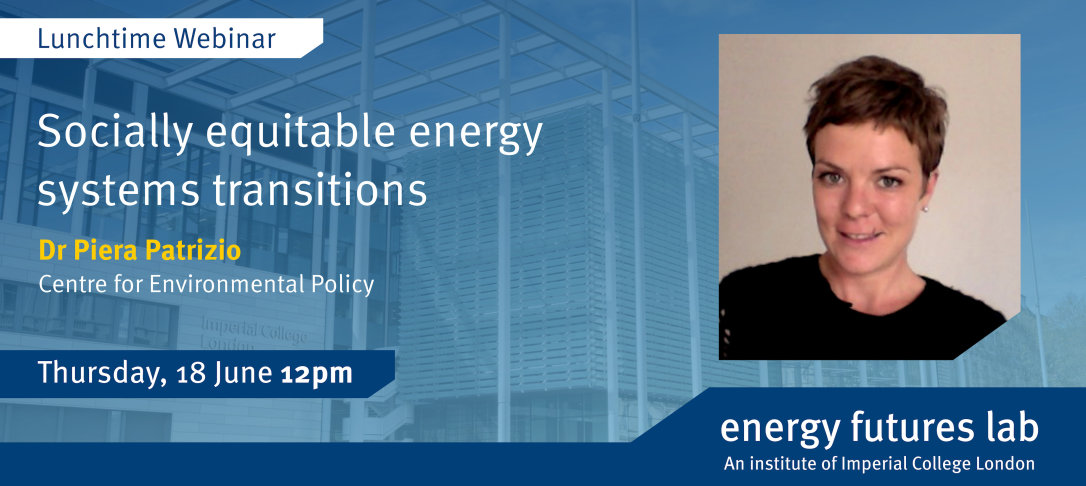
Abstract
The European transition to zero-carbon carbon energy systems implies a wide range of changes which may adversely affect certain industrial sectors, communities and regions. As observed in various European countries, fears of job losses, economic decline, and disruptive structural changes have fuelled opposition to low carbon policies. It is hence becoming increasingly clear that, while Europe’s energy transition puts into practice the values of sustainable development and stewardship of natural resources, it must also uphold two other key European values: fairness and solidarity. Moving away from traditional least-cost modelling approaches, Dr. Patrizio proposes a framework to compare the socio-economic impacts of alternative mid-century energy systems decarbonisation strategies. Her work shows that the most socially valuable energy transition is the one where domestic strategic assets are promoted and local industrial sectors are protected. As such, decarbonising the European energy systems via CCS deployment brings the highest co-benefits at marginal costs. On the other hand, compensating for the absence of CCS with increased upscaling requirements for renewable and storage technologies results in a one to five-fold increase in total system costs by 2050 and in large socio-economic trade-offs, especially in service-based economies like the UK.
Biography
Dr. Piera Patrizio completed her Ph.D. in 2016 at the Energetic Engineering department of the University of Udine. In 2016, Dr. Patrizio was appointed as a Research Scholar at the Ecosystems Service and Management (ESM) program at the International Institute for Applied Systems Analysis (IIASA), where she investigated alternative energy system decarbonisation strategies via CCS in various regional context. She is currently a research associate at the Centre For Environmental Policy (CEP) at the Imperial College, under the NERC-GGR project framework. Her current work focuses on connecting insights from energy modelling with social science and climate policy and includes the assessment of socio-economic benefits of energy systems decarbonisation and the exploration of approaches that can foster the integration of knowledge across disciplines.
Energy Futures Lab
Energy Futures Lab is one of six Global Institutes at Imperial College London. The institute was established to address global energy challenges by identifying and leading new opportunities to serve industry, government and society at large through high quality research, evidence and advocacy for positive change. The institute aims to promote energy innovation and advance systemic solutions for a sustainable energy future by bringing together the science, engineering and policy expertise at Imperial and fostering collaboration with a wide variety of external partners. The Energy Futures Lab daytime seminars are delivered by staff and students from across the College and further afield.